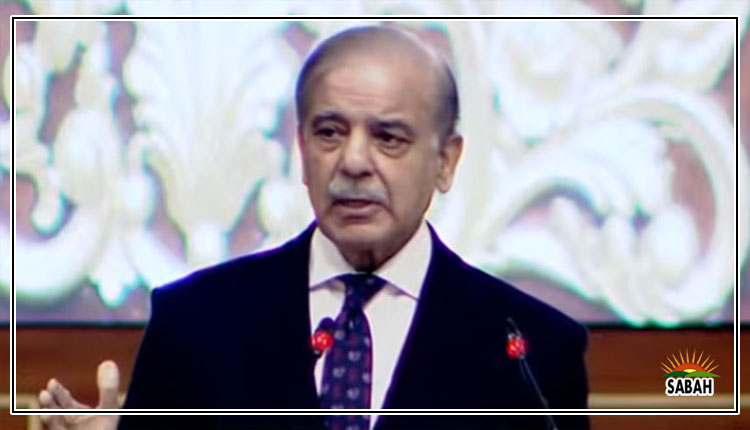Zelensky’ trip: a well-timed stroke by Biden… Dr Imran Khalid
Ukrainian President Volodymyr Zelensky, whose wartime signature attire—olive green sweatshirt, cargo pants and combat boots—have become globally recognised was given a special concession by the US Congress by putting aside a long-established tradition that normally requires men to wear a jacket and tie inside the chamber. There is every reason to believe that Zelensky deliberately used this outfit while addressing the US Congress to remind his audience they were in the presence of a wartime leader who is trying to convince them to keep their hearts open for more ‘investment in global security and democracy.’ This was his very first foreign trip since the start of the Russian attack on Ukraine in late February. Although it is too early to validate whether this abrupt, whirlwind trip to the United States, on the invitation of President Joe Biden, has achieved all the desired objectives or not, one thing is sure that Zelensky did not return home empty-handed. As per reports, Biden first discussed the option of Zelensky visiting Washington during a telephone call with the Ukrainian President on December 11 and a formal invitation was extended a few days later that Zelensky readily accepted, initiating further joint consultations on the security parameters of the risky, highly secretive trip. One key reason behind this hurriedly planned visit, it seems, is linked to the performance of the Republicans in the mid-term polls who after registering a majority in the House and are now showing increased anxiety over the continued financial and military assistance to Ukraine. President Biden and his close associates, on the other hand, feel that the situation in Ukraine is gradually slipping out of Putin’s hands and this is the right time to further strengthen the Zelensky government to push back the Russians to pre-invasion positions.
President Biden, Nancy Pelosi and the top tier of Democrats displayed extraordinary affection for Zelensky during this lightning tour which included his iconic address to the Congress. He performed much better, in terms of impressing and motivating his audience, than what was expected of a media-savvy personality like him in his address. “Your money is not charity. It’s an investment in the global security and democracy that we handle in the most responsible way,” is how he subtly tried an amalgam of gratitude and fresh request for more weapons and money in his very well crafted speech. He delivered his speech in English and his highly orchestrated emotive gestures, which included unfurling a battle flag signed by the defenders of Bakhmut, a frontline city in the east of Ukraine that he visited on the eve of his Washington trip and gifting it to the US Congress as a memorabilia, evoked roaring appreciation on the floor of the House and his speech was interrupted 18 times with standing ovations by nearly all members of Congress, with the exception of some Republican lawmakers who desisted from showing any support for him. Here lies the main cause of headache for President Biden, who is wary of the growing resistance of the Republicans towards his strategy on the Ukraine war. Over the course of this year, Congress has approved approximately $67bn in economic and military and economic assistance to Ukraine. A 2023 spending package Congress is poised to pass in these days includes an additional $45bn in Ukraine aid. Just on the eve of Zelensky’s visit, the Biden administration announced it is sending nearly $2 billion in additional security assistance to Ukraine–including a sophisticated new Patriot air defense system which has been a long-standing request of Zelensky to safeguard against the Russian aerial attacks on the Ukrainian cities.
The Patriot system is widely considered one of the most capable long-range equipment to defend airspace against incoming ballistic and cruise missiles, as well as some aircraft. Because of its long-range and high-altitude capability, it has the capability to shoot down Russian missiles and aircraft far from their intended targets inside Ukraine. However, compared to other smaller air defense systems, Patriot missile batteries require much larger crews, needing dozens of personnel to properly operate them. The training for Patriot missile batteries normally takes multiple months, a process the United States will now expedite due to the mounting pressure of almost-daily aerial attacks from Russia. The inclusion of the Patriot system will certainly strengthen the Ukrainian defense and discourage the Russians from taking the aerial route to destroy the infrastructure of the Ukrainian cities. The supply of the Patriot system is bound to change the whole complexion of the war and even Zelensky has labeled it as a major ‘shift’ in the relationship with the US. But the problem with President Biden is how to keep the ball rolling when the Republicans’ majority in the House will start impeding his generous plans to provide more weapons and money to Ukraine. Ever since the Russian troops crossed into Ukrainian territory early this year, the Biden administration has been generously patronising Kyiv in its resistance against Russia’s brutal invasion. Yes, there is overwhelming public support for the Ukrainians in the United States and President Biden has been translating these public sentiments by furnishing the Zelensky regime with unprecedented material and political backing. But the Republicans feel that the American voters’ inordinate love and amity for Ukraine is being discreetly usurped by President Biden and Democrats to their political advantage. Some Republicans did not attend Zelensky’s speech to the joint session of the Congress as a protest of what they claim are unbridled dollars dishing out to Kyiv.
In May when the US Congress approved a stand-alone aid package for Ukraine, 57 Republicans in the 435-seat House of Representatives and 11 in the 100-seat Senate voted against it. Since then the Republican support for continued assistance has eroded much faster particularly after the midterm polls. Some key Republicans in the midterm are openly raising the question why the US was spending so much money on a distant country, instead of funding border security and fighting crime at home.
The midterms have brought in 86 new members of the House and seven new senators. By arranging Zelensky’s address, President Biden has made a calculated move to apprise these new legislators about the first-hand description of the Ukraine war and a pitch for their support. The optics of Zelensky’s speech suggest that he has been quite successful in making an imprint on the US legislators, but the dynamics of party politics will certainly play a role in restricting the Biden administration. President Biden played his card very timely by inviting Zelensky at this juncture—less than two weeks ahead of when the Republicans are supposed to take on the majority in the House on January 03—to build a pro-Ukraine momentum in the US Congress. The anxiety of the Republicans camp over Biden’s Ukraine strategy is linked with the apprehension that Ukraine’s victory in the war will be credited to Democrats and it may impact the forthcoming presidential elections. Perhaps, this is the prime reason, more than anything else, that has been keeping the Republican leadership to oppose Biden’s generous package for Ukraine. Zelensky’s trip has proven to be a well-timed stroke by President Biden to pre-empt any possibility of immediate resistance from the new House after January 03. Volodymyr Zelensky, at the same time, also played his role exceptionally well in creating a prodigiously pro-Ukraine atmosphere among the American public through his flashing trip.
courtsy The Nation












